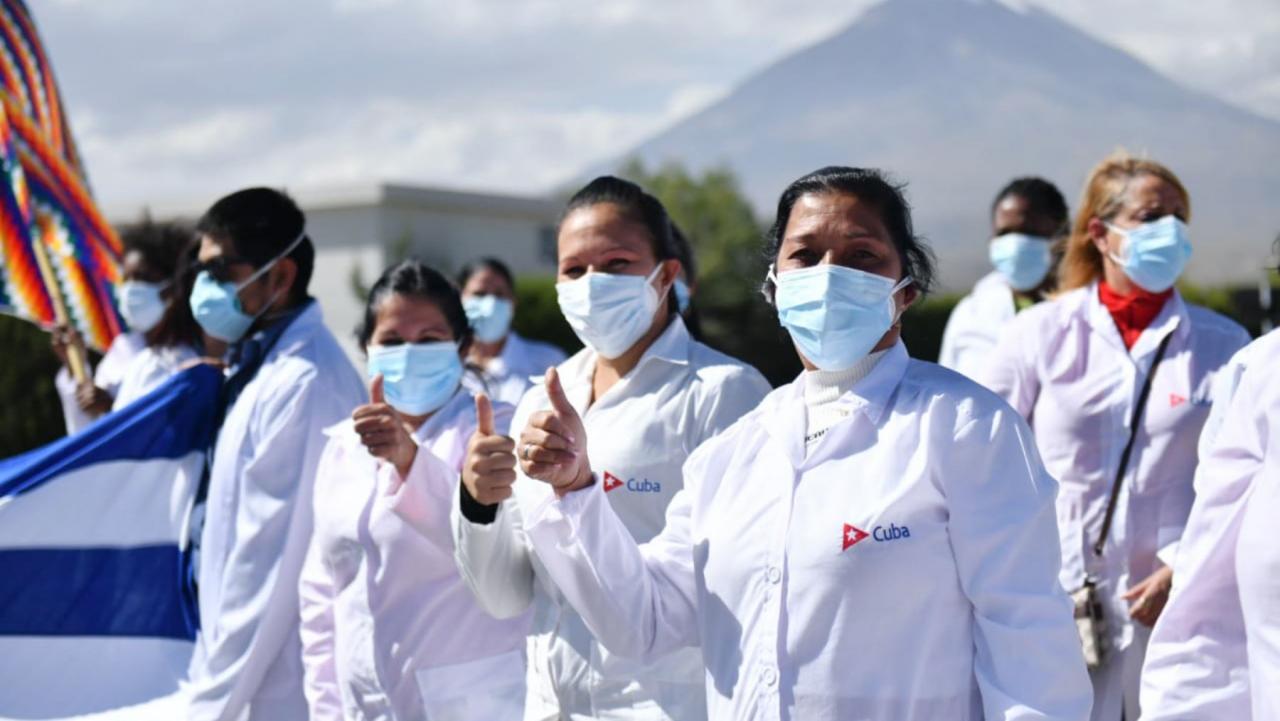As part of the criminal suit brought by Cuban Prisoners Defenders (CPD), the organization filed papers last week before the International Criminal Court (ICC) revealing, among other issues related to the government's "medical missions" around the world, why Habana keeps the contracts that its professionals sign secret.
These documents, which have been condemned by UN rapporteurs and organizations such as Human Rights Watch for constituting labor exploitation and slavery, are practically inaccessible.
According to CPD's investigation to support its case, "622 Cuban doctors against the Cuban Government", only 33% of the professionals of the "missions" were presented with and delivered a copy of their employment contracts abroad.
35% were offered a contract that they signed, although they did not receive a copy, while the remaining 32% were not even supplied with an agreement indicating the conditions governing their employment.
Neither do these documents, covered by agreements with other governments and multilateral organizations, appear for consultation in official publications, nor have they been presented in United Nations public access forums.
The CPD asserts in its complaint that the agreements to which CPD had access "explicitly include a confidentiality clause between the two States that violates all the formal requirements for them be considered valid..."
This situation constitutes a violation of the "publication principle", which the United Nations Organization upholds in Article 102 of its Charter, which reads: "Every treaty and every international agreement signed by any member of the United Nations after the entry into force of this Charter will be registered with the Secretariat and published by it as soon as possible".
According to the rule, "no party to a treaty or international agreement that has not been registered in accordance with the provisions of paragraph 1 of this Article may invoke that treaty or agreement before any United Nations body."
The "publication principle" appears in Article 26 of Decree-Law 191 of 1999,"On international treaties" published in the Official Gazette of the Republic of Cuba.
As Havana's agreements fail to comply with the requirements that would render them a formal source of law, Cuban workers abroad lack the legal security requisite called for by several international legal instruments.
Hence, they are subjected to various violations and harsh sanctions for not complying with the provisions of the island's authorities.
The CPD points out in its criminal case that most of the countries with which the Government of Cuba has signed these agreements, such as Brazil, Uruguay and Ecuador, as well as the Pan American Health Organization (PAHO) and the World Health Organization (WHO), are signatories of the Vienna Convention on the Law of Treaties.
"Article 53 of that Convention establishes the agreements that are null and void: 'Any treaty that, at the time of its conclusion, violates a peremptory norm of general international law is void. For the purpose of this Convention, a peremptory norm of general international law is one accepted and recognized by the international community of States, as a whole, as a norm, and which may be modified only by a subsequent norm of general international law of the same nature."
Hence, the agreements of the "medical missions" breach, in many cases, the Convention on the Abolition of Forced Labor, of which the Cuban Government, as a member of the International Labor Organization (ILO), is a signatory.
CPD states in the document it submitted to the ICC that, for the same reason, civilian workers who leave "medical missions" must receive protection under the terms of the International Convention on the Protection of the Rights of All Migrant Workers and their family members (ICRMW, 1990) which seeks to safeguard the rights of migrant workers and their families.
Havana is not a signatory of this legal instrument.
